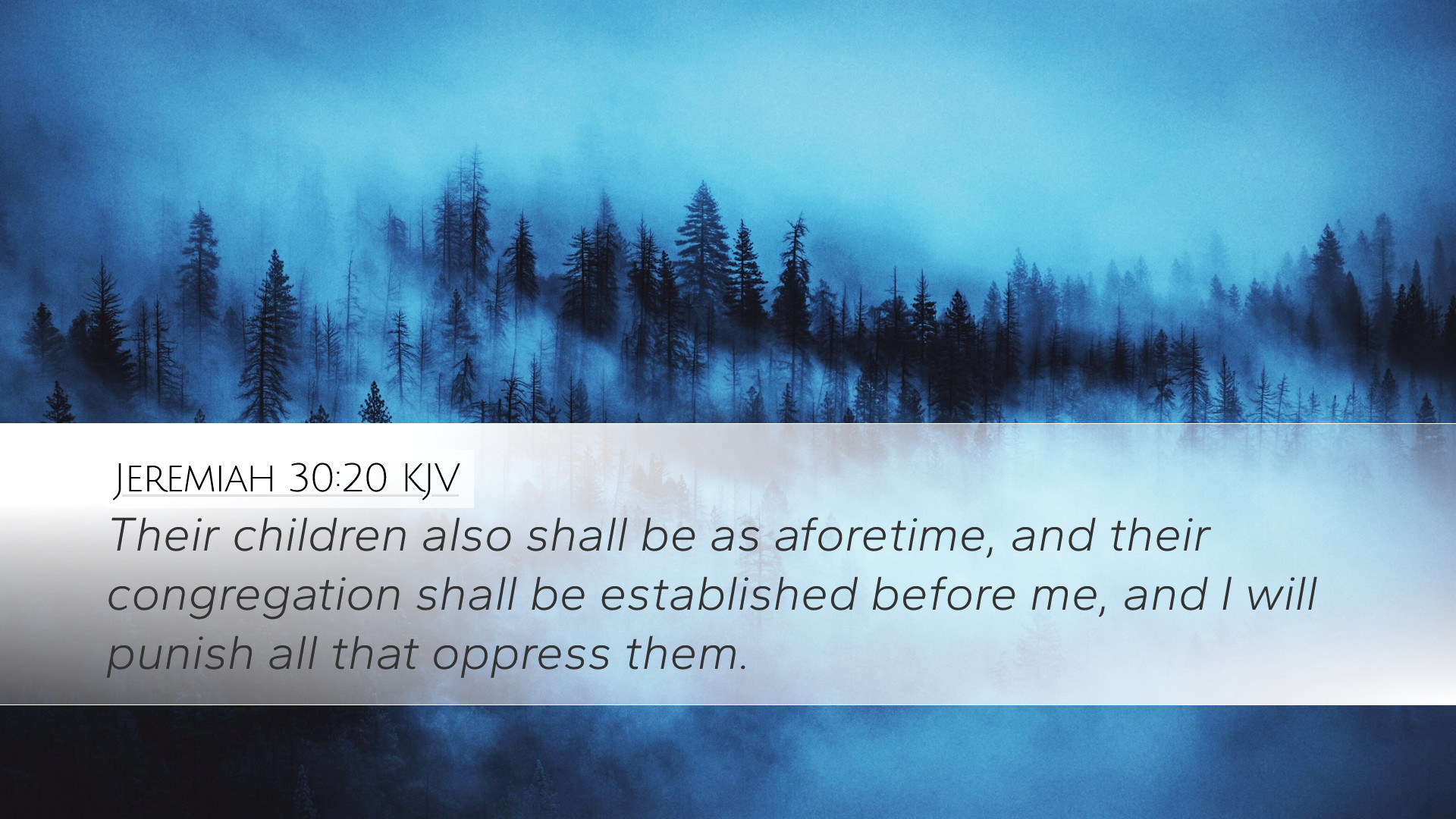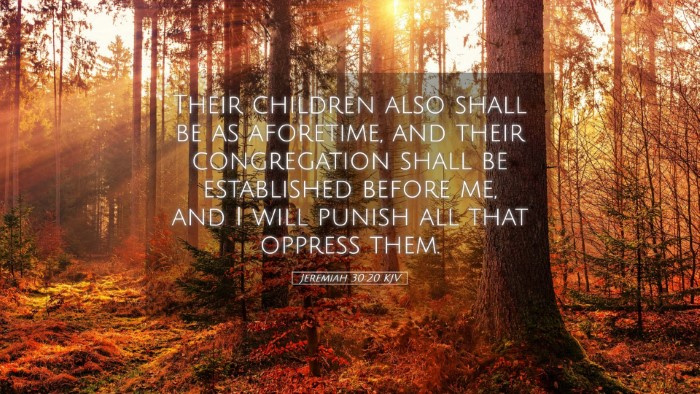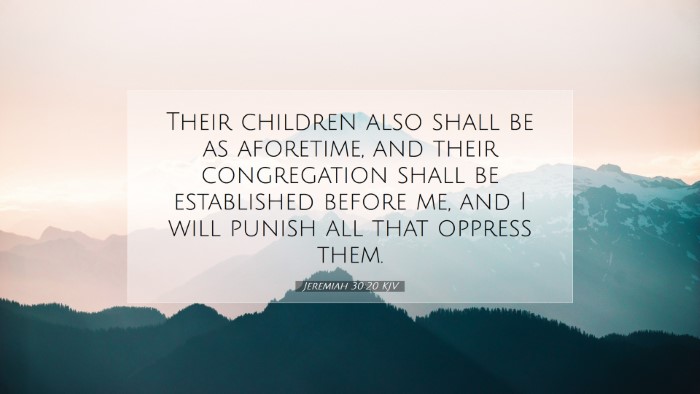Commentary on Jeremiah 30:20
Verse: "Their children also shall be as aforetime, and their congregation shall be established before me: and I will punish all that oppress them."
Introduction
The book of Jeremiah offers profound insights into the relationship between God and His people, particularly in the context of suffering, restoration, and hope. Jeremiah 30:20 specifically speaks to the restoration of Israel, juxtaposing their past with promises of future blessings. This commentary synthesizes insights from several public domain sources to explore the rich meaning behind this verse.
Contextual Analysis
Jeremiah prophesied during a turbulent time for Judah, foreseeing destruction due to disobedience but also offering hope for restoration. The overarching theme in this chapter revolves around God's intention to restore His people after their exile. The previous verses warn of impending doom, but they ultimately shift to a message of comfort and assurance.
Historical Background
The Israelites faced oppression from Babylon, and their national identity was in jeopardy. The prophecy serves as a reminder of God's covenant with Israel, anchored in His promise to maintain their lineage and community despite adversity.
Theological Insights
This verse encapsulates several theological themes relevant for pastors, students, and theologians:
- Divine Restoration: God promises to restore not just the physical nation of Israel, but also its social and spiritual fabric. This aspect is underscored by the assurance of their children being like those of old, reflecting continuity and hope.
- Judgment and Mercy: While Jeremiah speaks of God's punitive measures against oppressors, He balances this with mercy towards His chosen people. This duality emphasizes God’s righteousness and His unwavering commitment to His covenant.
- Community and Identity: The mention of the congregation highlights the significance of communal worship and shared identity amongst the Israelites. Restoration entails a revival of both individual faith and collective community.
Commentary from Public Domain Sources
Matthew Henry
Matthew Henry emphasizes the assurance God provides to His people. He points out that God affirms the return of their children, which symbolizes future generations who will carry on the faith. Henry notes that the restoration of the congregation stands as a testament to God's faithfulness in keeping His promises, suggesting that even amidst trials, believers are called to remember the legacy of faith.
Albert Barnes
Albert Barnes highlights the significance of the phrase "shall be as aforetime," interpreting it as an indication of complete restoration to the state of blessing experienced in past times. Barnes further elaborates on God's promise to "punish all that oppress them," reinforcing the idea of divine justice. He asserts that while God punishes oppression, His ultimate aim is for the flourishing of His people.
Adam Clarke
Adam Clarke offers an interesting perspective on the "congregation" aspect, noting that this denotes divine favor and acknowledgment of a faithful remnant. Clarke remarks on the significance of familial ties in restoring community, emphasizing that the mention of the children hints at future generations being rooted in a covenant relationship with God. This reflection is crucial for understanding the enduring nature of God's promises and the hope offered in the face of strife.
Application for Contemporary Believers
For modern readers, Jeremiah 30:20 resonates deeply, providing guidance and encouragement in times of trial:
- Hope amid Despair: The promise of restoration can serve as a source of hope for individuals and communities facing hardships, reminding them that God’s intentions are ultimately for good.
- Community Engagement: The emphasis on the congregation highlights the importance of community in worship and faith. Contemporary believers are encouraged to foster relationships and support systems within their churches.
- Embodying Justice: The assurance of God’s judgment against oppression calls Christians to advocate against injustices in their communities, reflecting God's character by standing against oppression.
Conclusion
Jeremiah 30:20 serves as a powerful reminder of God's covenant faithfulness and His desire for restoration amidst adversity. Understanding this verse through the lens of public domain commentaries enriches the interpretation, providing layers of meaning that inspire hope, foster community, and invoke a call to justice. As believers reflect on this promise, they are reminded that even in the darkest times, God’s light of restoration and hope continues to shine, bringing future generations into a renewed relationship with Him.


